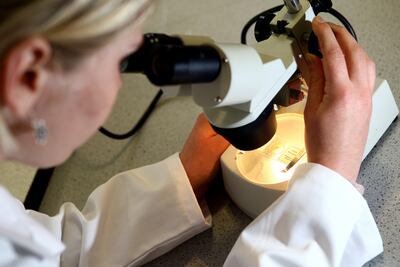An artificial intelligence-based tool for estimating a newly diagnosed cancer patient’s chances for surviving long term has been developed by researchers.
The Cancer Survival Calculator uses machine learning to provide highly accurate, patient-specific survival estimates, refining prognosis evaluations to within nine to ten months of actual survival across various cancer types.
The calculator uses several factors to improve survival estimation, according to a study presented at the American College of Surgeons Clinical Congress 2023.
Unlike conventional methods that primarily depend on cancer staging, this tool incorporates a myriad influential factors ranging from patient age and tumour size to specific treatment variables, offering a more comprehensive and personalised survival prognosis.
The research primarily focused on patients diagnosed with breast, thyroid, and pancreatic cancers, because these cancers present diverse patient populations and survival rates.
Using an extensive data set from the National Cancer Database, the calculator was optimised using records of patients diagnosed in 2015 and 2017.
The data set encompassed 259,485 breast cancer patients, 76,624 thyroid cancer patients, and 84,514 pancreatic cancer patients, allowing the machine learning algorithms to identify and rank various factors influencing survival outcomes.

“There is a multitude of other factors that may influence a patient’s survival beyond just their staging criteria," said Dr Lauren Janczewski, lead study author and surgical resident at Northwestern University's McGaw Medical Centre in Chicago.
She further highlighted the tool’s ability to include specific tumour biomarkers and treatment variables, enhancing its accuracy and predictive capabilities compared with previous survival calculators.
The development process involved using three quarters of the collected data to train the machine-learning algorithms, with the remaining data used for validation, ensuring the prototype’s accuracy and reliability in survival estimation.
As the next step, the research team plans to enhance the user interface of the calculator, facilitate its implementation in clinical practice, and conduct pilot tests at selected cancer centres.
The ultimate goal is to expand the calculator's utility to include additional cancer types, helping healthcare practitioners improve cancer prognosis estimations and patient care.


